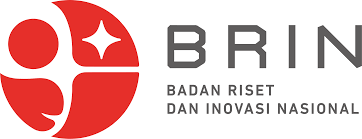Stock Market Integration and Corporate Investment in Nigeria: A Critical Analysis
DOI:
https://doi.org/10.58355/organize.v2i4.63Keywords:
stock market integration, corporate investment, Auto-regressive Distributed LagAbstract
Low level of corporate investment in Nigeria coupled with poor financial base of a single stock exchange market system bring the need for the study to critically examined the effect of stock market integration on corporate investment in Nigeria from 1986 to 2022. The study adopted Augmented Dickey Fuller (ADF) unit root test and Auto-regressive Distributed Lag (ARDL). The data used for this study were collected from the Central Bank of Nigeria, Statistical Bulletin (2022). The ADF showed that the real exchange rate, lending interest rate, and trade openness were all integrated of order zero (∆ = 0); while, stock market integration and corporate investment were integrated of order one (∆ = 1). The ADF result showed that stock market integration exhibited a non-stability trend over the years, real exchange rate showed a negative sign but non-significant at 5%; while, lending interest rate and trade openness was negative and significant. The study concluded that stock market integration was volatile over the years which limited the rate of impacting corporate investment in Nigeria; while, lesser interest rate and trade liberation promote corporate investment. The study recommended that in order to fast ease stock market integration, which is crucial for economic progress, the Nigerian Exchange Group NGX should aim toward ensuring that each listed firm on the market have a strong market capitalization through encouraging different ownership structure to possess their respective stock value
Downloads
References
Afolabi, A. A. (2015) Impact of the Nigerian capital market on the economy. European Journal of Accounting Auditing and Finance Research,3(2), pp.88-96.
Ahmad, W., Mishra, A.V. and Daly, K. J. (2018). Financial connectedness of BRICS and global sovereign bond markets. Journal of Emerging Market Review, 37(2), pp. 1–16.
Algaeed, A. H. (2020). Capital market development and economic growth: An ARDL approach for Saudi Arabia, 1985–2018. Journal of Business Economics and Management, 6(4), pp. 23-38.
Agrawal, V. (2012). Managing the diversified team: Challenges and strategies for improving performance. Team Performance Management, 18, pp. 384-400.
Aluko, O. A. and Kolapo, T. F. (2020). Macroeconomic factors and stock market development in sub-Saharan Africa: does the measure of stock market development matter? Transnational Corporations Review, 12(1), pp. 53-62.
Anthony, A. (2017). Employees’ commitment and its impact on organizational performance. Asian Journal of Economics, Business and Accounting, 8(4), pp. 56-71.
Carrieri, F., Errunza, V. and Hogan, K. (2007). Characterizing world market integration through time. Journal Fin. Quant. Anal. 42, pp. 915–940.
Dube, S. D. G. and Shoko, J. (2020). The impact of macroeconomic variables on stock market development in Zimbabwe (1990-2018). Journal A Multidisciplinary Peer Reviewed Journal, 6(9), pp. 88-101.
Ezeanyeji, C. I. and Ifeako M. (2019). Foreign portfolio investment on economic growth of Nigeria: An impact analysis. International Journal of Academic Management Science Research, 3(3), pp. 24-36.
Gail, N. and Kapingura, F. M. (2015). Stock market integration in Africa: The case of the Johannesburg Stock Exchange and selected African countries. International Business & Economics Research Journal, 14(2), pp. 23-43.
Grbić, M. (2020). Stock market development and economic growth: The case of the Republic of Serbia. Post-Communist Economies, 4(63), 1-16.
Gujarati, D. N., Porter, D. C. and Gunasekar, S. (2015). Basic econometric (4th ed.). New York: The McGraw−Hill Companies.
Hillier, D. and Loncan, T. (2019). Stock market integration, cost of equity capital, and corporate investment: Evidence from Brazil. Journal of European Financial Management, 25:pp. 181–206.
Iheanacho, E., Okere, K. I. and Onoh, J. O. (2023). Nexus between financial integration, capital market development and economic performance: Does institutional structure matters? Heliyon, 9(3), pp. 68-98.
Imade, E. O. (2021). Capital market performance and economic growth in Nigeria and the United States of America. Academic Journal of Current Research, 8, pp. 57-79.
Johannesburg Stock Exchange (2022). TradingHours.30 March 2022. Retrieved 30 May 2022. (https://www.tradinghours.com/markets/jse)
JSE Debt Market (2022). JSE Limited. Retrieved 22 May 2022. (https://www.jse.co.za/trade/debt-market)
Khetsi, Q. S. and Mongale, I. P. (2015). The impact of capital markets on the economic growth in South Africa. Journal of Governance and Regulation, 4(1), pp. 1-14.
Khetsi, Q. S. and Mongale, I. P. (2015). The impact of capital markets on the economic growth in South Africa. Journal of Governance and Regulation, 4(1), pp. 1-14.
Khoo E. M. (2005) Research questions and research objectives. The Family Physicians, 13 (3), 25 – 26.
Kingstone, N. and Yudhvir, S. (2022). Stock market integration in Africa: Further evidence from an information‐theoretic framework. Journal of International Finance of Wiley, 5(7), pp. 56-69.
Kouki, S. and Rezgui, S. (2017). The impact of financial integration on economic growth: Case of Maghreb countries. Archives of Business Research, 5(3), pp. 70-79.
Kumar, R. (2014). Research methodology: A step-by-step guide for beginners. Sage.
Leedy, P. D. and Ormord, J. E. (2005). Practical research: Planning and design (8th ed.). Upper Saddle River, NJ: prentice Hall.
Liu, Y. (2016). Essays on stock market integration: On stock market efficiency, price jumps and stock market correlations. Ph.D. thesis submitted to Umeå School of Business and Economics, Umeå University
Mamvura, K., Sibanda, M. and Rajaram, R. (2020). Causal dynamics among foreign portfolio investment volatility financial deepening and stock markets in low income countries. Journal of Economics and Business.
Mazikana, A. T. (2022).Stock Market Development . Available at SSRN: https://ssrn.com/abstract=4115814 or http://dx.doi.org/10.2139/ssrn.4115814
Metwally, E. (2013). Using the case research approach in understanding the effect of managing change through technology to achieving strategic competitiveness in private banks: Gains and perils. Journal of International Finance & Economics, 13(2), pp. 5-20.
Mugableh, I. (2021). Causal links among stock market development determinants: Evidence from Jordan. Journal of Asian Finance, Economics and Business, 8(5), pp. 0543-0549.
Musheke, M. M. amd Phiri, J. (2021). The effects of effective communication on organizational performance based on the systems theory. Open Journal of Business and Management, 9(2), pp. 659-671.
Obadiaru, E. D., Obasaju , B. O., Omankhanlen, A. E. and Eyiolorunshe. D. T. (2020). Dynamic links between the Nigerian equity market and those of selected regional and developed countries. Journal of Heliyon, 6(2), pp. 47-62.
Obriki, S. T. and Ese, I. G. (2022). Financial integration and economic growth in Nigeria. International Journal of Innovative Finance and Economics Research 10(4), pp. 194-210,.
Okafor, V., Bowale, E., Onabote, A., Afolabi, A. and Ejemeyovwi, J. (2021). Financial deepening and economic growth in Nigeria: A Johannsen and Error Correction Model Techniques. International Journal of Financial Research, 12, pp. 263-273.
Okonkwo, O.N.; Ogwuru, H.O. and Ajudua, E.I. (2014). Stock market performance and economic growth in Nigeria: An empirical appraisal. European Journal of Business and Management, 6(5), pp. 33–42.
Onuoha, O. C., Okoye, N. J. and Chika, U. F. (2021). Exploring the nexus between corruption and all share index of Nigeria Capital Market. International Journal of Research and Innovation in Social Science, 5, pp. 707-715.
Oprea, O. R. and Stoica, O. (2018). Capital markets integration and economic growth. Montenegrin Journal of Economics, 14(3), pp. 23-35.
Owen, M. A. (2020). Stock market development and economic growth: Empirical evidence from an institutional impaired economy. International Journal of Financial Research, 11, pp. 496-509.
Ozen, E. and Tetik, M. (2019). Did developed and developing stock markets react similarly to Dow Jones during 2008 crisis? Front. Appl. Math. Stat., 5(49), pp. 1–7.
Pimple, K.D. (2017). Research ethics. Hampshire: Ashgate. Routledge
Power, D.J. and Power, M.L. (2015) Sharing and Analyzing Data to Reduce Insurance Fraud. Proceedings of the 10th Annual MWAIS Conference, Pittsburg, KS, USA. 14-15 May
Solnik, B. and Zuo, L. (2016). Relative optimism and the home bias puzzle. Review of Finance, 3(5), pp. 23-41.
Strydom, H. (2014). An evaluation of the purposes of research in Social Work. Social Work/Maatskaplike Werk, 49(2):149-164.
Sunny, O. T., Ayodeji, B. O. and Dadang, P. J. (2022). An empirical analysis of the stock market and economic growth nexus in Nigeria and south Africa. International Journal of Economics, Commerce and Management, 9(10), pp. 89-99.
Umar, B. (2022). Impact of capital market performance on economic growth in Nigeria: A systematic review. Journal of Global Economics and Business, 3(10), pp. 47-67.
Wilson, V. (2016). Research Methods: Focus Groups. Evidence Based Library and Information Practice, 11, 1(S): 44-46.
Downloads
Published
How to Cite
Issue
Section
License
Copyright (c) 2023 NEJO, Femi MIchael

This work is licensed under a Creative Commons Attribution 4.0 International License.

















